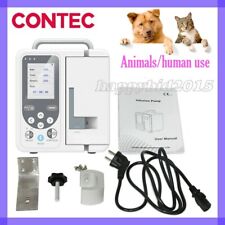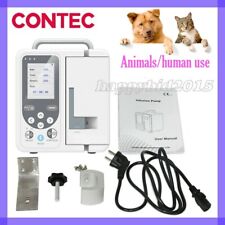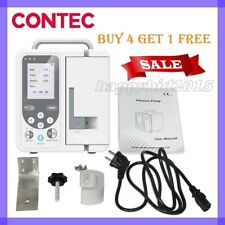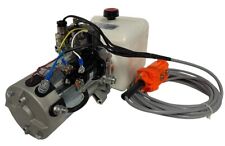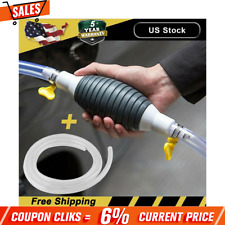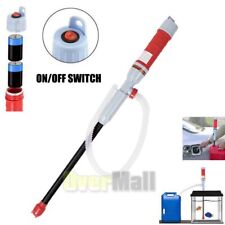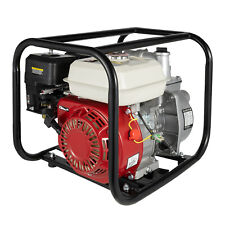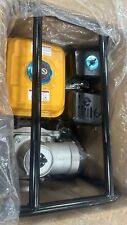No matter how you think about it, a house is simply not a home without proper functioning heating and cooling systems and devices. And the same can be said about any business or commercial property.
Think about it for a moment. Is it any use having a nice house to provide shelter if you end up shuttering and shivering all through the night on those long, cold winter nights or dripping in sweat all summer long? Or having an office space that you dread heading to every day?
Whether you are looking to purchase a new home or commercial space, or simply want to make the most of the one you have, heating and cooling systems are often the most important factor of real estate ownership on the whole.
And that is precisely why we here at Heat.net want to break down the details, cover the bases, and make sure you understand all of the aspects and intricacies of HVAC.
So browse around, get comfortable, and get ready to learn exactly how you can make your home or office more comfortable, and maximize its value with the best possible heating and cooling solutions available today. We will break down what you need to keep your space cool or warm without breaking the bank, and help you determine which brand names, such as Carrier, Bryant, and Trane, and products are right for your needs and your budget.
What is “HVAC”?
HVAC itself is a term that is commonly used in conversations revolving around cooling and heating systems, and is essentially just an acronym that relates to Heating, Ventilation, and Air Conditioning. These are obviously the 3 most important parts of any heating and cooling system as together they alter and effect overall air quality, temperature, and humidity in any given space.
Heating Systems
Understanding heating and heating systems is quite simple when you break it down. These systems are obviously in place to ensure that your property is as comfortable and warm as possible no matter how cool the temperature happens to be outside. While top of the line heating systems may not be a priority for everyone, if you live in a climate that brings with it a harsh winter you want to make sure your heating is as reliable and effective as possible.
In the majority of homes, central heating systems work via the procedure of forced air. This allows them to function by sending heated air throughout the specific ductwork in a home in order to distribute it evenly amongst the entire space. However, on the other side of the coin you will also find homes that are heated via radiant systems that incorporate products such as radiators to heat up specific rooms and offer temperature control based on the home owner’s preferences.
Cooling Systems
Just as heating systems are a must for anyone that lives in a particularly cold environment, cooling systems are a necessity for those that live in areas where the temperatures can rise well above normal comfort levels. When it comes to cooling, central systems are also the most popular as they can deliver cool, clean, fresh air equally throughout each room within a home.
Often these rely on a separate air conditioning unit to produce refrigerants and blow them into air ducts and throughout the home.
For those that are looking for something on a smaller scale, there are also basic air conditioners created solely for cooling one at a time or single unit devices that blow cool air directly into the air.
Deciphering Between Residential Heating and Commercial Heating
In reality many people instantly assume that home heating and cooling will differ greatly from commercial heating and cooling, but that is not always the case. In many instances, commercial heating will rely on the same principles as home heating just on a larger scale. Based on the size of a particular commercial building, owners may utilize forced air systems, radiant systems, or gravity systems to circulate heat throughout the structure based on their needs.
The same thing goes for home ownership, and the options home owners have for creating the most efficient system overall. What it all boils down to is of course cost-efficiency and overall effectiveness, but also personal choice.
How Exactly Do Heating and Cooling Systems Work?
In the simplest of terms, every cooling or heating system that you come across is based around 3 essential components:
-A source of cooled or warmed air
-A method of distribution of the air to specific rooms
-A control used to regulate the system overall, ideally a thermostat or other device
Within any residential or commercial property it is common for both the sources of heat and cool air to utilize the same distribution and regulation controls. Thus, cool air created via an air conditioning unit will be sent through the same ducts that heat is created by a furnace would.
Any problems, breakdowns, or issues pertaining to your heating or cooling system will usually be relating to a malfunction within one of these basic components.
Taking the Next Step with Residential or Commercial Heating and Cooling Systems
Don’t forget that you can order some really cheap textbooks from the local college bookstore if they have an HVAC program that will ensure you have some good diagrams to follow along if you’re gonna do the work yourself. Now that we have covered the basics in terms of what heating and cooling systems actually are, how they work, and why they are necessary, you now have the foundation to ensure that your current system is as efficient and effective as possible. The very last thing that you want to do is waste energy or flush money down the toilet on a system that is dysfunctional or does not fit your specific needs.
There are literally hundreds of different tips and tricks and thousands of products and additions that you can take advantage of in order to heat or cool your home or commercial property in a much more cost-efficient manner. The even better news is that there has never been a better time to get informed, save money, and conserve energy, and that is exactly what we here at Heat.net are here to help you do.
Why continue to spend hundreds, even thousands, of dollars in order to keep your property comfortable when you do not have to? Or suffer from an uncomfortable workplace or residence just because you feel you cannot afford an improved heating and cooling system?
The basic thing that everyone wants in every home is to live in comfort, and one of the major factors to achieve it is to have an energy saving heating and cooling system. It is better to get your money’s worth from the start by choosing the right heating and cooling system for your home, taking into consideration the number of heating and cooling hours needed, the size of the room, the entire house or building including its thermal efficiency, how old the house or building is, its location and environment due to the importance of the sun’s position in the area, the floor plan and the fuel cost in the neighbourhood. And by purchasing the best heating and cooling system which can produce its best three (3) primary functions such as HVAC (Heating, Ventilating and Air Conditioning) systems, and learn the best maintenance possible, you will be well on your way to improving your overall comfort, saving on energy costs for your household as well as mother earth, by helping in the world’s global warming battle. A battle that not one of us would like to lose.
As we all know, heating and cooling systems consume more than half of the utility or electric bills at home and ways on how to cut on these unnecessary costs on energy have always been available online since it’s at the forefront of everyone’s mind. All you have to do is make wise decisions regarding your home’s heating, ventilating and air conditioning or HVAC system, follow proper maintenance and improvement advices and do it right:
Learning your heating and cooling equipment inside and out is equals to an easier do it yourself maintenance.
The two top reasons why heating and cooling systems fail and become inefficient are dirt and above all, neglect. For a more efficient equipment operation and certain energy recovery, regular maintenance is advised especially because it may be time to replace your old heating and cooling machine. For overall system maintenance, it is important for the heating and cooling system to be:
1) Checked for thermostat settings to make sure that the system accurately follows the set programmed temperature.
2) Checked if all electric connections and measure voltages are adequately tightened to ensure safety and longer motor life.
3) Ensured that all moving parts are well lubricated because lack of lubrication causes friction which will surely increase the quantity of electricity needed and will in turn increase your electric bill.
4) Checked if the air conditioner, furnace and heat pump systems are properly drained because if not, it can affect the humidity level inside your home, can grow bacteria and mold which can have unpleasant effect on one’s health and the undrained water can also cause damage inside the house.
5) Checked if the control systems are safe and running properly.
6) Checked if the air filter in your air conditioner, furnace and/or heat pump needs to be cleaned or changed.
Changing your air filter regularly is definitely important!
As mentioned earlier, dirt is one of the main root causes why a heating and cooling system becomes inefficient and to prevent dust and dirt to build up in the system, the filter has to be checked every month particularly in winter and summer period when the use of the equipment is usually maximized. This may lead to a much more expensive maintenance cost or in a worst case scenario, might even lead to an early system breakdown. If you notice that your filter is dirty, change it right away or every three months, at least.
Tuning up your HVAC (Heating, Ventilating and Air Conditioning) equipment is a sure-fire way to save more!
Hiring qualified engineers or technicians to execute proper maintenance on your equipment such as tuning up your HVAC system will prove to be more cost efficient in the end. By doing this, big problems in the future – that would lead to more expensive repair costs in the long run – would be prevented. Of course, choosing the right contractor would have to be considered as well. Note that it’s better to plan the check-ups of the cooling system before summer (spring) and the heating system before winter (fall) so that contractors would have ample time to check your system thoroughly unlike in summer or winter when they get really busy.
Sealing your heating and cooling ducts is a big way to seal your money in your pocket.
Leaking ducts with holes as well as poorly connected ducts can pull down the overall efficiency of your heating and cooling equipment by twenty percent (20%) making your utility bills soar at the same time. Not only that, it would also be difficult to sustain the overall comfort throughout the house, which is the primary goal in each household adjacent to savings. With leaking ducts, it doesn’t even matter how your thermostat is set. It will have the same effect.
In sealing ducts, never ever use duct tapes because they do not last. It is better to use a mastic sealant or foil tape. Since ducts are often concealed, it is rather challenging to try to seal them but you can always start with an accessible point such as in the basement, garage, attic or sometimes, even in a crawlspace. Make sure that the vents connecting on the floors, walls and ceilings are also sealed well.
Change is inevitable, however. By trying to hold on to your old heating and cooling system, you will end up paying more than buying a new one. If you have noticed that your equipment already needs constant repairs, is more than 10 years old, and your bill is way up the ladder, then most probably, it’s time for a big change. All you have to do is choose the heating and cooling equipment that best suits your home.
Feel free to browse around through our array of articles, product recommendations, and tutorials so that you can ensure you get the highest quality heating and cooling products at the lowest possible price. Not only will you be saving money, you will also enjoy the satisfaction of knowing that you are doing your part to reduce your carbon footprint and create a more energy-efficient tomorrow.



